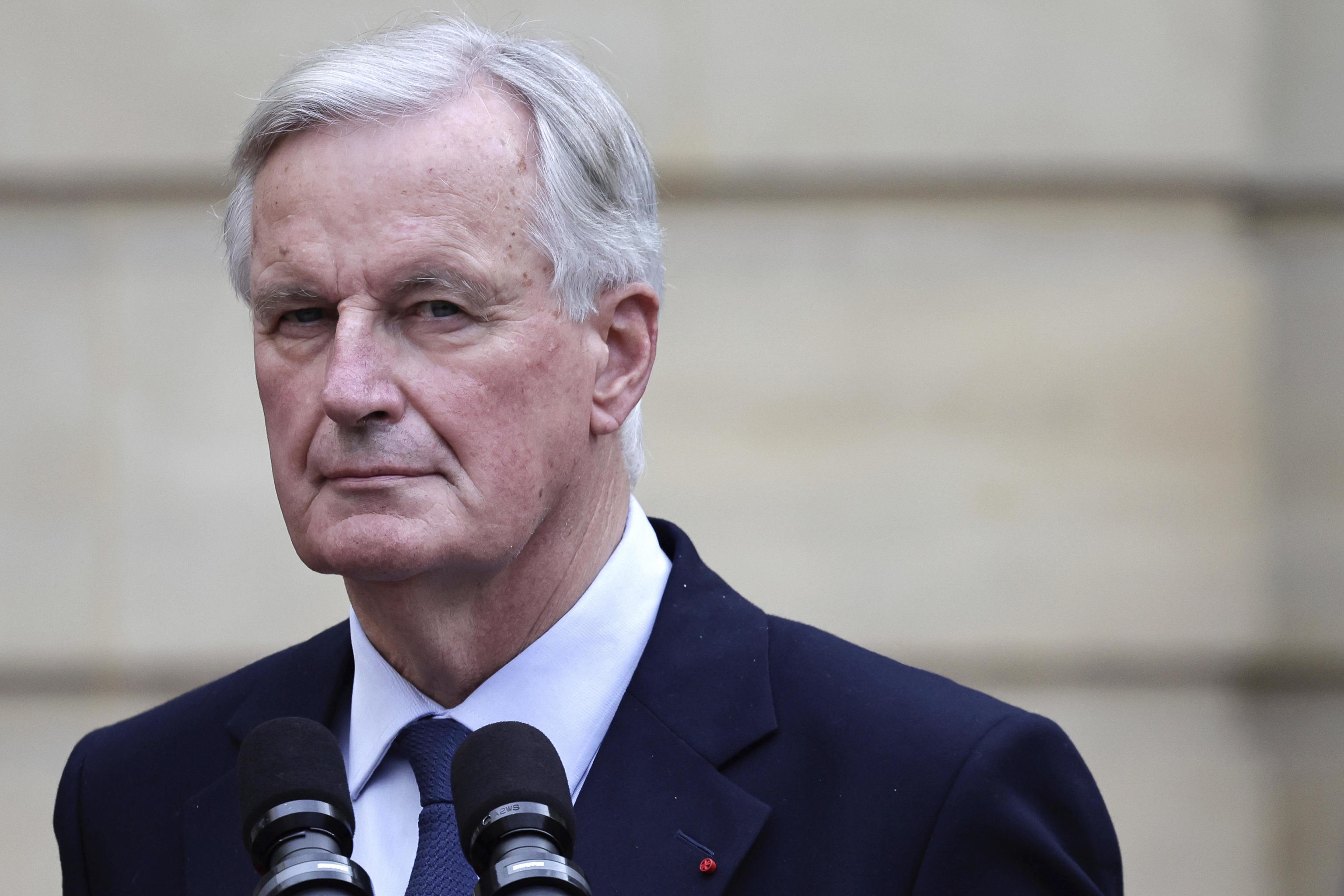He has a delicate mission at a time when France is a pressure cooker. He has already demonstrated his negotiating skills during the Brexit process, but the challenge now is greater as it is within his own country. Michel Barnier (La Tronche, 1951) takes the reins of the French government, 50 days after the early legislative elections called by Emmanuel Macron, at the most unusual moment France has experienced in decades: with the Assembly fragmented into three irreconcilable blocs and a situation that hinders governability.
Barnier is a figure in French and European politics. He has dedicated half a century to it, starting when he was not of legal age. He became the youngest deputy in France, entering office in 1978 at the age of 22. Emmanuel Macron, at that time, was just a few months old. He served as a minister under Jacques Chirac and Nicolas Sarkozy. First in 1993, then as Minister of Foreign Affairs (2004) and Agriculture from 2007 to 2010 under Sarkozy.
He is better known in Europe than in France, having been the European Commissioner for Internal Market from 2010 to 2014, participated in the European Constitution project, and was the Brexit negotiator. In 2022, he ran in the primaries of the conservative party Les Républicains to be a presidential candidate. He finished third and could not pursue it. These were the elections won by Emmanuel Macron against Marine Le Pen.
Within his party, he is respected and appreciated, considered a technocrat, a statesman. He is referred to as the "French Joe Biden" in his circle, also nicknamed "Mister Brexit". He holds controversial positions, especially regarding immigration. He called for a three to five-year moratorium on this issue for France to assess the situation and for legal sovereignty so that the country does not have to "be subject to decisions of the EU Court of Justice".
"If we don't change anything about it, we will have another Brexit," he said. For some, these stances diverge from EU principles. He criticized Macron's presidency for being "vertical and solitary" and, as detailed by Le Monde newspaper, his name was considered in 2020 to replace Edouard Philippe as Prime Minister, but Macron demanded he leave Les Républicains. He refused.
One of the requirements Macron sought in the new Prime Minister was that they did not oppose his major reforms. Barnier will not censor the pension reform, a key aspect of his second term, which was approved after months of violent protests and with half the country against it. Barnier also supports raising the retirement age.
He has a strong economic background. This is not coincidental, as it is a key area for Macron. It will lend credibility in Europe at a time when France continues to revise its deficit targets upwards. His appointment has been met with some relief in Brussels, where he is seen as a negotiator with dialogue skills.
The task is immense: to try to unlock the political deadlock in France. His appointment has the approval of the far-right led by Marine Le Pen, who for now will not censure him in Parliament. The left, however, will. One of his aides told Le Monde that Barnier is someone capable of "bringing everyone to the table and finding a solution".
In 2021, he told Le Figaro the following: "I have always believed that this Assembly, which I served for 17 years, should be a place of dignity, not an arena for gladiators. I am struck by this constant struggle of the far left and, at times, the far right. The French have sent a clear message to Macron: to change policies and methods."
On Thursday afternoon, the youngest and oldest Prime Ministers of France exchanged roles. Gabriel Attal, 25, and Barnier, 73. The latter outlined some of his priorities: security, immigration... He embarks on a new stage "with great humility".
In this tumultuous period, "we will have to tell the truth, even if it is difficult. This relates to ecology and the deficit. We must speak the truth about our country's influence in Europe, about immigration, about the vital role that economic actors play in France. We will have to tell the truth, and I will tell the truth," Barnier said in his first speech as Prime Minister.
